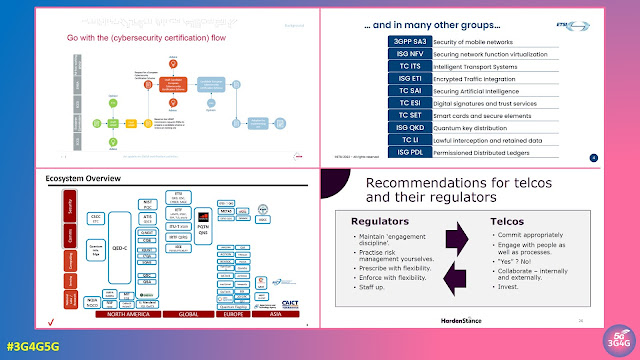theNetworkingChannel hosted another interesting webinar recently exploring the topic of how Quantum Internet is emerging and has many open directions, from disruptive and long-term ideas to concrete applications that can be explored with real devices today.
The panel consists of distinguished experts, including:
- Bernardo Huberman – Fellow and Vice President of Next – Gen Systems – CableLabs – USA
- Marcello Caleffi – Professor – University of Naples “Federico II” – Italy
- Stephan Ritter – Director of Applications of Quantum Technologies – TOPTICA Photonics AG – Germany
- Stefano Pirandola – Founder and CEO – nodeQ – Professor – University of York – UK
The webinar description stated:
As Quantum Key Distribution (QKD) technology approaches maturity, the scientific community is now turning its attention to more advanced applications of quantum networks at metropolitan and international scales, such as distributed/delegated quantum computing and quantum sensor networks, requiring end-to-end entanglement of qubits, quantum memories, and varying degrees of fault tolerance. To make a leapfrogging advance, the co-existence of upcoming quantum networks with classical networks is also becoming more focal, with a significant impact at the physical level (i.e., the sharing of a telco fiber or rack space in an exchange point) and from a logical perspective (i.e., the integration with control/management planes of an Internet Service Provider or the interplay with classical jobs to be executed in a High-Performance Computing infrastructure). In this panel, we will discuss the research and development trends currently occupying the top positions of the priority list to make the Quantum Internet a real thing, with a tangible impact on industry, science, and society.
Key Takeaways:
The webinar looked at Quantum physics principles, such as superposition and entanglement, underlie the technology and have led to exciting developments, including the potential for quantum computers to solve complex problems and enable secure communication. Quantum entanglement can be used to coordinate parties without communication, enabling secure auctions and frequency hopping spread spectrum technology, which has been around since the 1950s.
Early Applications and Challenges:
- Frequency hopping, used for secure communications since the 1950s, faces issues with machine learning-based attacks due to predictable sequences.
- QKD offers a solution by enabling Alice and Bob to coordinate using truly random, provably secure sequences.
- Despite its potential, building a quantum internet faces practical hurdles, including high implementation costs.
Quantum Internet Architecture: Revolution Over Evolution:
- The panel debated whether the Quantum Internet should evolve from classical networks or be a complete revolution. The consensus leaned toward a full redesign, requiring a new protocol stack rather than incremental updates.
- Entanglement is the core resource, unlike classical information, as it requires coordinated multi-node operations.
Technologies and Prototypes:
- Quantum memories rely on specific lasers to manipulate qubits, and wavelength conversion techniques are being developed for compatibility.
- A prototype network is under construction, aiming to demonstrate teleportation and blind quantum computation by the decade’s end.
- The Quantum Internet Alliance (QIA) launched the QIA Technology Forum (QIATF) to foster collaboration among academia, industry, and ecosystem partners.
Quantum Teleportation and Distributed Computing:
- Quantum teleportation enables remote quantum computers to exchange qubits by sharing entangled states.
- This is fundamental for distributed quantum computing, where multiple machines collaborate remotely.
- Achieving a hybrid Quantum Internet will require interfaces (e.g., electro-optical converters) to connect diverse quantum systems like photonic, superconducting, and solid-state qubits.
Commercialisation and Future Outlook
- Quantum-secured communications for military use could emerge in 10–15 years.
- A full-fledged Quantum Internet could take 25 years, comparable in scale to the classical internet.
- Gradual progress is expected, with significant quantum computing milestones in 5–10 years.
While the slides have not been shared, the video of the webinar is embedded below:







